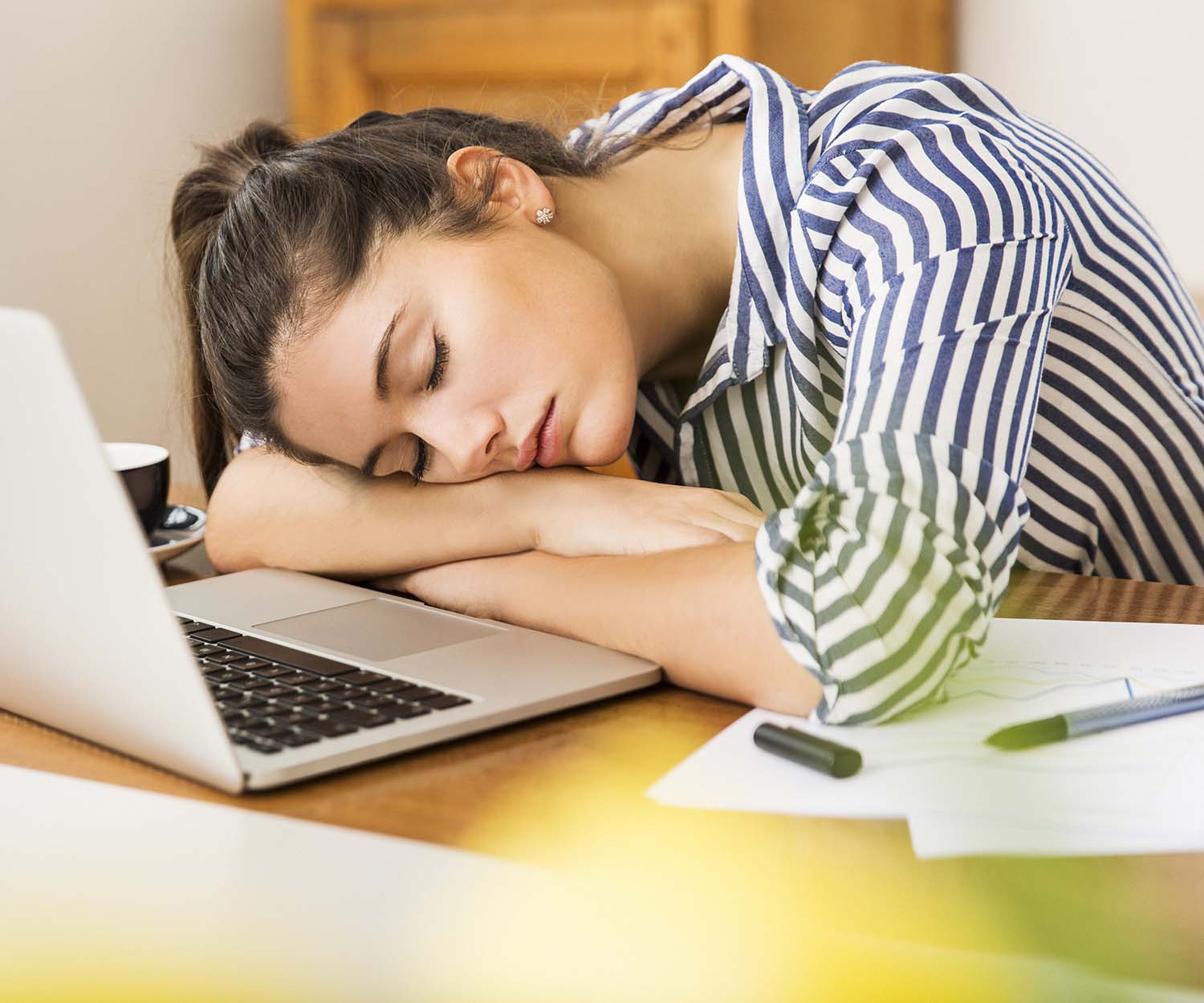Picture this: you’re lying beside the pool, a delicious cocktail within arm’s reach and a tropical breeze gently washing over you.
Bliss! It’s so tranquil, and you’ve waited so long for this trip, yet… you can’t help wondering what’s happening in the office right now.
How did that difficult client respond to the email you fired off before you left? What’s happening with that project you’re in charge of? Within seconds you’ve picked up your phone and logged into your emails, your holiday vibe melting away faster than the ice in your cocktail.
Welcome to vacation sabotage, a situation where stressed-out workers, used to rushing through life at a hundred miles an hour, find it incredibly challenging to stop and fully enjoy leisure time.
You might be physically on holiday but mentally, you’re still at work – which is anything but the purpose of annual leave.
“We can find it hard to change gear or switch pace if our lives are generally busy and require a certain level of constant frenetic energy and cognitive overload,” explains psychologist Jocelyn Brewer.
“It might take some people a few days to disconnect their mental habits.
“I think relaxing on holidays, for some, also involves the worry about what’s happening while they’re away, what things might go wrong or whether the person replacing them – if there is one – is managing,” she says.
Technology isn’t exactly helping, with smartphones and wifi making it all too easy to stay connected to work. When you’re engaged in work, you’re at work – regardless of where you are in the world, Jocelyn says.
“We’re tempted to keep up with our emails and oversee what’s happening at work, read the newsletters, write papers or reports we never have time for, or other tricks that might seem valuable or virtuous, but are simply not allowing our brains space from the mental work of work.”

While there’s nothing wrong with caring about your job and wanting to excel professionally, getting space from work regularly is actually one of the best things you can do to help yourself perform better in the long run.
“The change of surroundings, a different routine – perhaps the lack of alarm clock – and change of focus from work to play gives us an opportunity to rest and recuperate,” Jocelyn says.
“Unless you are going on a massive adventure tour – and even then, the change is likely to spark some kind of renewal, growth or alternative to the daily grind.”
Of course, many people have absolutely no problem switching off from work and hitting that resort or campground with zero regard for what’s happening at home. But for others, it’s a different story.
Vacation sabotage may be more likely for those who hook their sense of identity to their jobs, Jocelyn says, making it harder to detach out of hours.
“Many of us define our lives by what we do for work,” she explains.
“Work creeps into our home lives via technology so we don’t separate from this as clearly and definitely as we used to. There is a general sense of increased busyness and demands on not only our time, but also on being responsive and ‘always on’.”
In addition, our increasingly divided focus can make the idea of relaxing feel unfamiliar.
A Danish study published in the journal Nature Communications earlier this year found our collective attention spans have reduced in recent years thanks to social media and the relentless 24/7 news cycle.
Fiona Craig, a life-balance coach who helps people live more satisfying lives, says she regularly encounters stressed-out clients who struggle to switch off.
“The way our culture is, we’re used to so much information and our attention going from the notification on our laptop to someone calling us, and so on,” she says.
“In the ’80s and ’90s, I could sit and read a book, but now I’m reading a page or two and my mind’s jumping to, ‘Oh, we’re going to have lunch now’, or something like that. I find I have to calm down and bring my thoughts back to finishing that chapter.”

Remember the last time you didn’t have to rush everywhere? No? You’re not alone. Being away from the office is a great time to recapture that feeling.
To make the most of your vacation, Fiona recommends not overscheduling your time.
“The whole point of the holiday is to actually have a break,” she says.
“As much as I love running around to [look at] temples and eating, it’s also about doing nice nurturing activities, like maybe a massage, a yoga class or walks in nature.”
Being fully present in the experiences you’re having is also key.
“Really savour every moment,” Fiona advises.
“Sometimes I won’t even take pictures because I want to be fully present and enjoying the smells, the sights and the sounds of that place. Technology kind of breaks us away from the moment.”
Leisure sickness
A trap that busy people often fall for before their holidays is burning the midnight oil to get through all your tasks in the period just before you leave, which means you spend the first few days of the trip completely exhausted.
That stress increases your chances of coming down with ‘leisure sickness’, a term for illnesses that typically hits certain people on holidays or weekends.
Dutch researcher Professor Ad Vingerhoets says you’re more likely to come down with leisure sickness if you’re a perfectionist in your work and take your professional responsibilities very seriously.
Overloading your schedule before you leave increases your body’s production of the stress hormone cortisol, which will lower your immunity to infections such as the common cold, so it’s probably better if you start winding down gradually before you leave.
5 ways to wind down
Prepare well so you’re better able to really put the tools down:
“Set clear expectations with your team or colleagues about the fact you will not be contactable – presuming that is what you want – and create contingency plans and communicate who people should talk to instead of you,” suggests Jocelyn.
If you work in a team, ask a colleague to provide you with a small report:
Perhaps one or two paragraphs of what transpired during your break.
“That stops you checking hundreds of emails to try and work out what’s happened while you’ve been away,” says Fiona.
Set your out-of-office message a day early:
“And list the day after you’re back [as your return date] so you don’t get bombarded the day you’re back at work,” Fiona suggests.
Put limits on smartphone use:
“If you have to take your phone with you, perhaps set a time for half an hour or one hour, maybe in the evenings, to check emails,” Fiona suggests.
Learn to be okay with boredom:
It’s something you probably normally dodge by reaching for your smartphone (perhaps more out of habit than necessity). If doing nothing makes you anxious, try some deep breathing exercises to centre yourself.
 Getty Images
Getty Images
.jpg)


